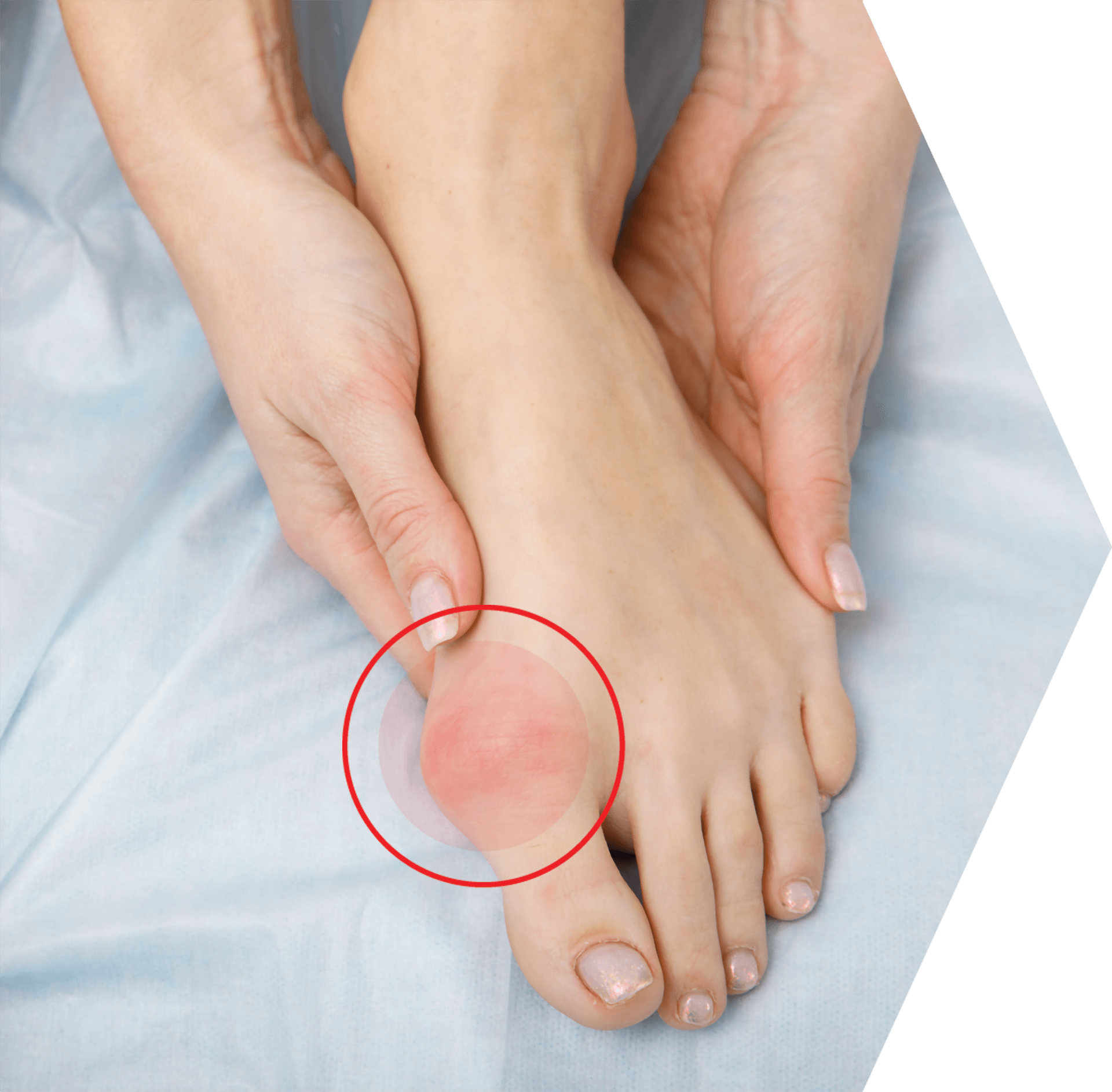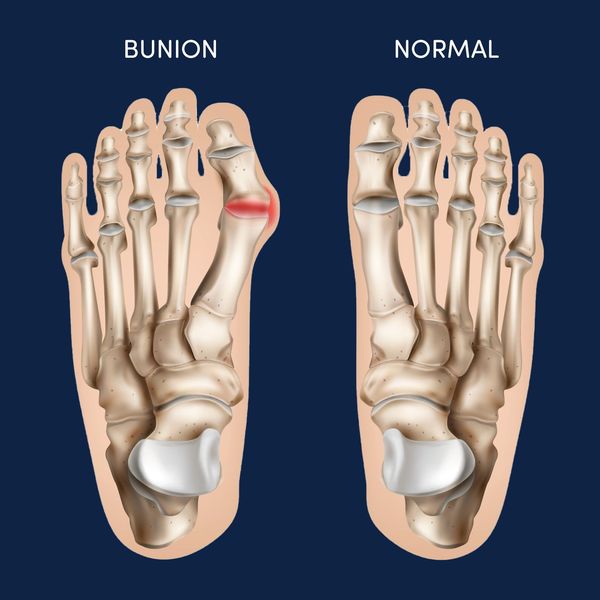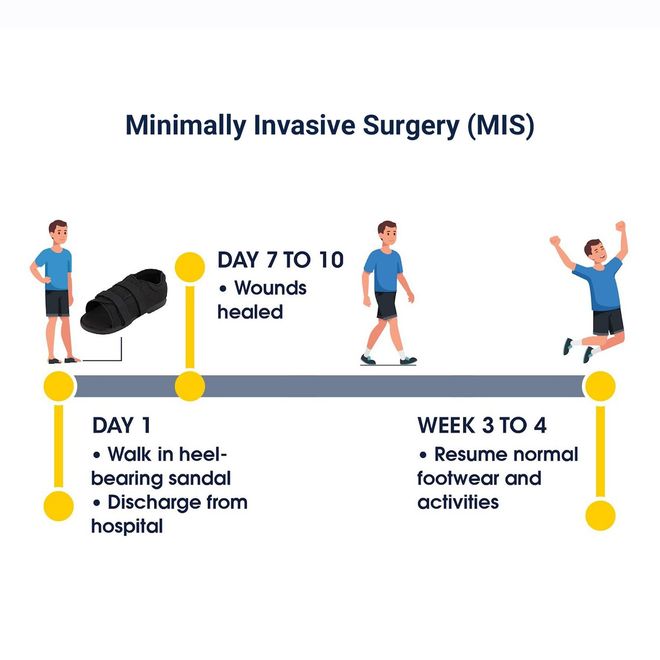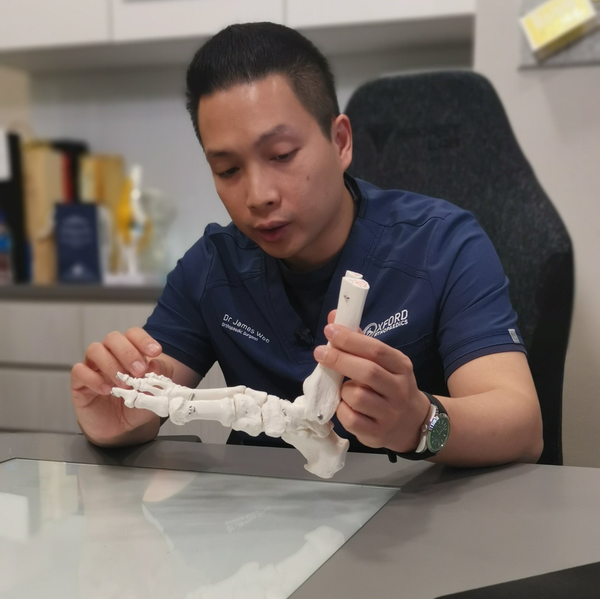Get Back on Your Feet Pain-free with our Orthopaedic Specialist
Dr James Wee
Senior Consultant Orthopaedic Surgeon
MBBS (Singapore), MRCS (Edinburgh),
MMed (Ortho), FRCS (Edinburgh)(Ortho)
Dr Wee specialises in lower limb surgeries, coming to 20 years of clinical experience in hip & knee, and foot & ankle surgeries.
He was trained in the UK and is an expert in minimally invasive surgeries. He is skilled in keyhole surgery for painful bunions and hammer toe deformities.
Aside from clinical practice, Dr Wee was appointed Adjunct Assistant Professor in Lee Kong Chian School of Medicine, a Senior Lecturer in Yong Loo Lin School of Medicine, and has authored multiple international peer-reviewed scientific journal articles.
What causes Bunions to develop?
Bunions develop when the tip of the big toe gets pulled and angles out towards the second toe, causing the joint at the base of the big toe to protrude on the inner side of the foot. Over time, the skin around the bunion may become painful and red, and calluses can develop around the bunion.
What are the challenges of Bunions?
Bunions can adversely affect your ability to walk and participate in sports. You may develop tingling and shooting pains if the nerves adjacent to the big toe are affected. Bunions can also cause the forefoot to widen, which can lead to difficulty with wearing certain footwear.
What factors contribute to bunion formation?
Prolonged stress on the feet and toes
Medical conditions such as rheumatoid arthritis and neurological disorders
Previous foot injuries
Foot deformities that form at birth like flat feet
Tight gastrocnemius muscles or Achilles tendons leading to forefoot overload
Genetic predisposition
Your bunions shouldn’t put a limit to your movement
It’s best to treat your bunions as early as possible! Here are your options:
Non-Surgical Options
Footwear modifications and the use of shoe orthotics like insoles and inserts may be recommended to help relieve the pressure between your toes.
Our orthopaedic specialist may also prescribe a short course of painkillers to help with pain relief and swelling.
Conventional Open Surgery
There are several surgical options and our orthopaedic specialist will assess your bunions and your foot condition as a whole before recommending any procedure.
A conventional open surgery may involve a longer recovery time in a cast, which can last from weeks to months.
Minimally Invasive Surgery (MIS)
If your bunions are diagnosed and treated early, our orthopaedic specialist may recommend minimally invasive surgery (MIS).
It minimises scar formation, greatly reduces pain and wound complications, and allows for rapid recovery after surgery.
At Oxford Orthopaedics, We’re Committed to Personalising Your Treatment
◆ Expert care for lower limb pain, sports injuries, and limb reconstruction
◆ Evidence-based and proven treatments suited to your needs
◆ Minimally invasive treatment options for faster and safer results
◆ Accelerated recovery with minimal pain and flexibility
◆ Hassle-free appointments for your convenience
◆ Passionate team providing attentive care throughout your recovery
◆
Provision of financial counselling and assistance with insurance claims
Don’t let bunions get the best of you!
We’re here to help you live your life without any pain in your feet.
Sign up to our newsletter
Insurance
Here at Oxford Orthopaedics, we’d like to walk you through your entire healthcare experience — from your first consultation to your recovery.
This includes working with your insurer during the claims and billings process to ensure a comfortable and hassle-free journey.
For those with Integrated Shield plans with riders for private hospital coverage or Corporate Insurance plans, you can rest easy as we provide assistance in obtaining a Letter of Guarantee (LOG) or Pre-authorisation certificate for your procedure. Additionally, we work with the hospital or surgical centres in processing your medical claims.
Please find the recognised insurance panels below:
Integrated Shield Plans

Corporate Insurance Partners













